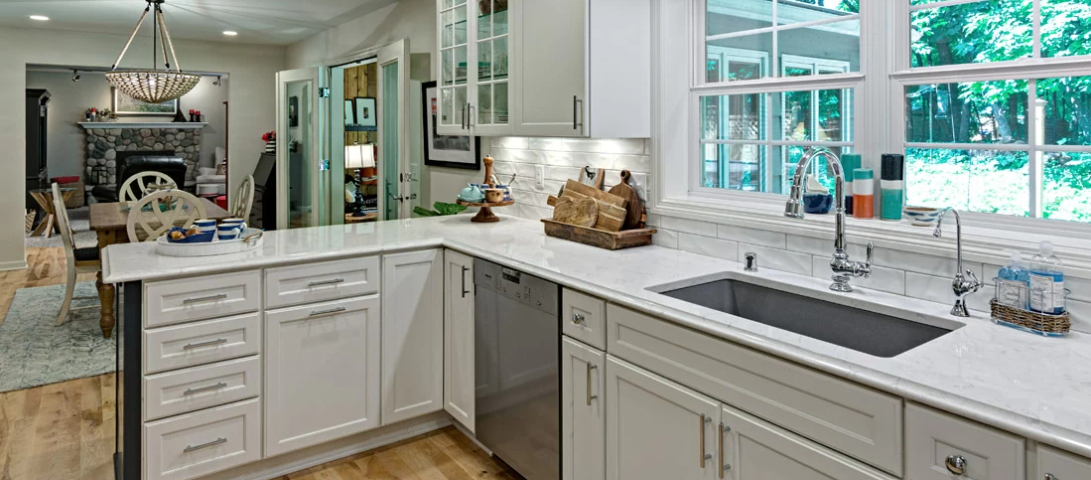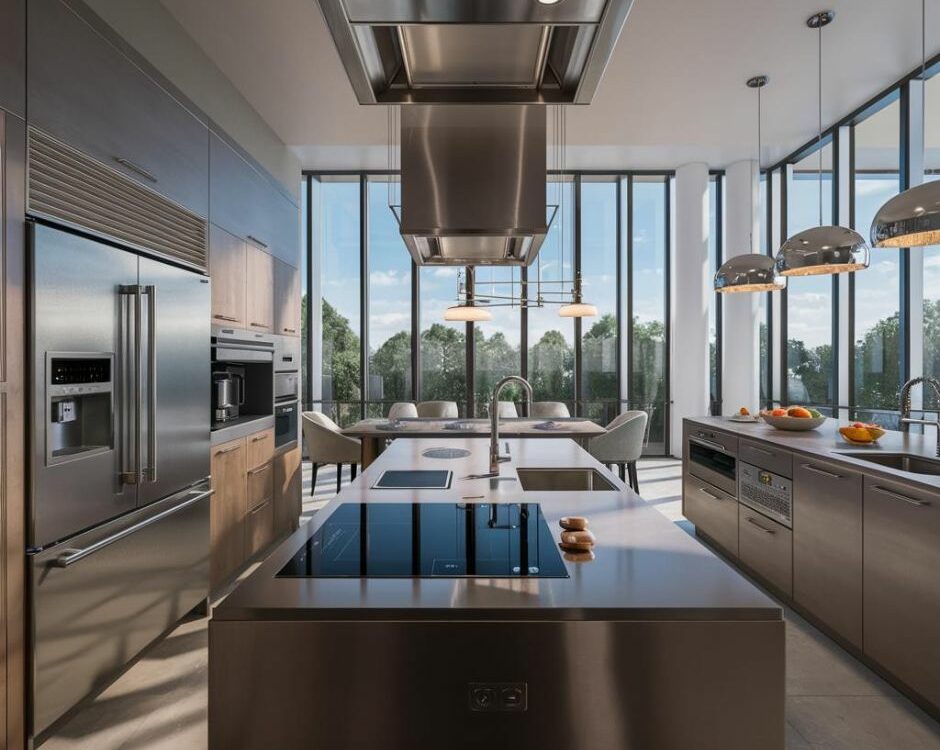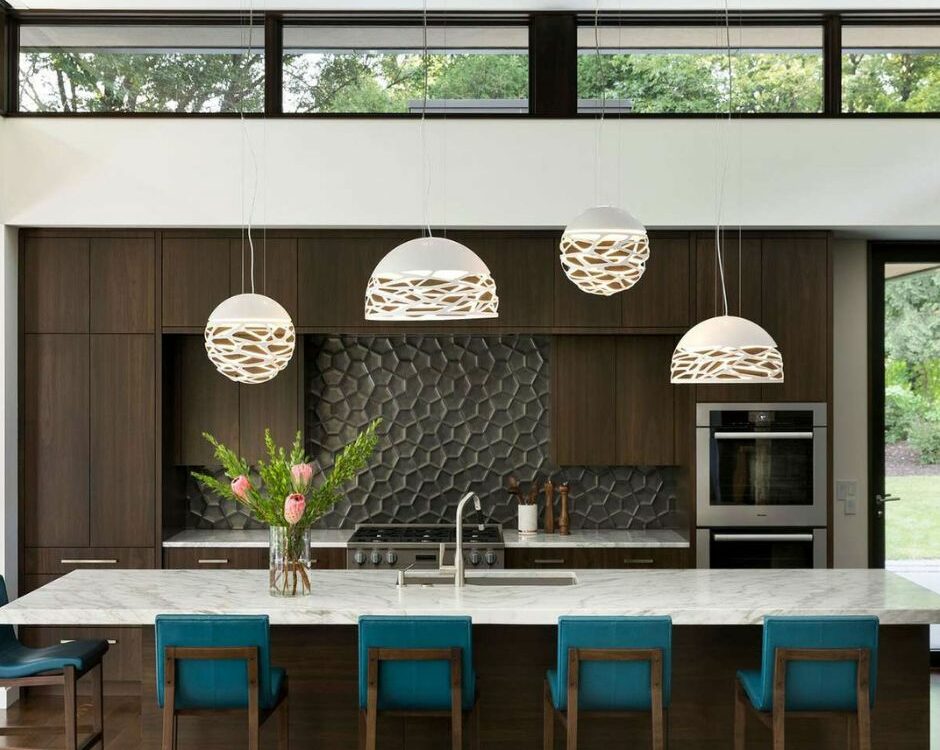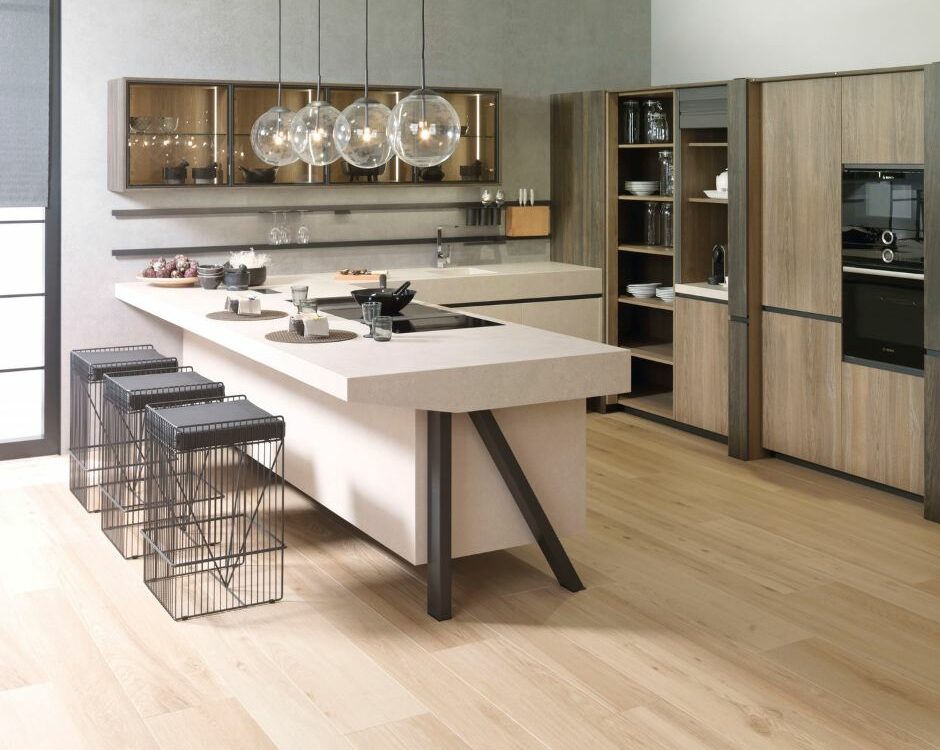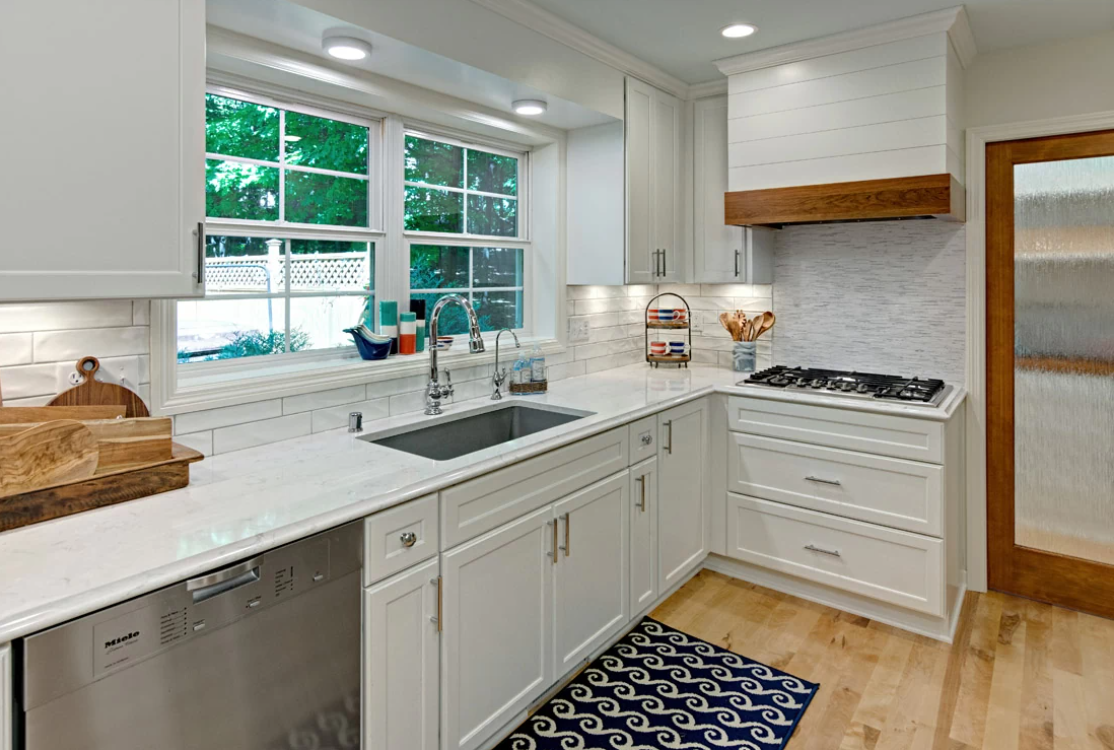
Green Cuisine: A Guide To Eco-Friendly Kitchen Remodeling
November 15, 2023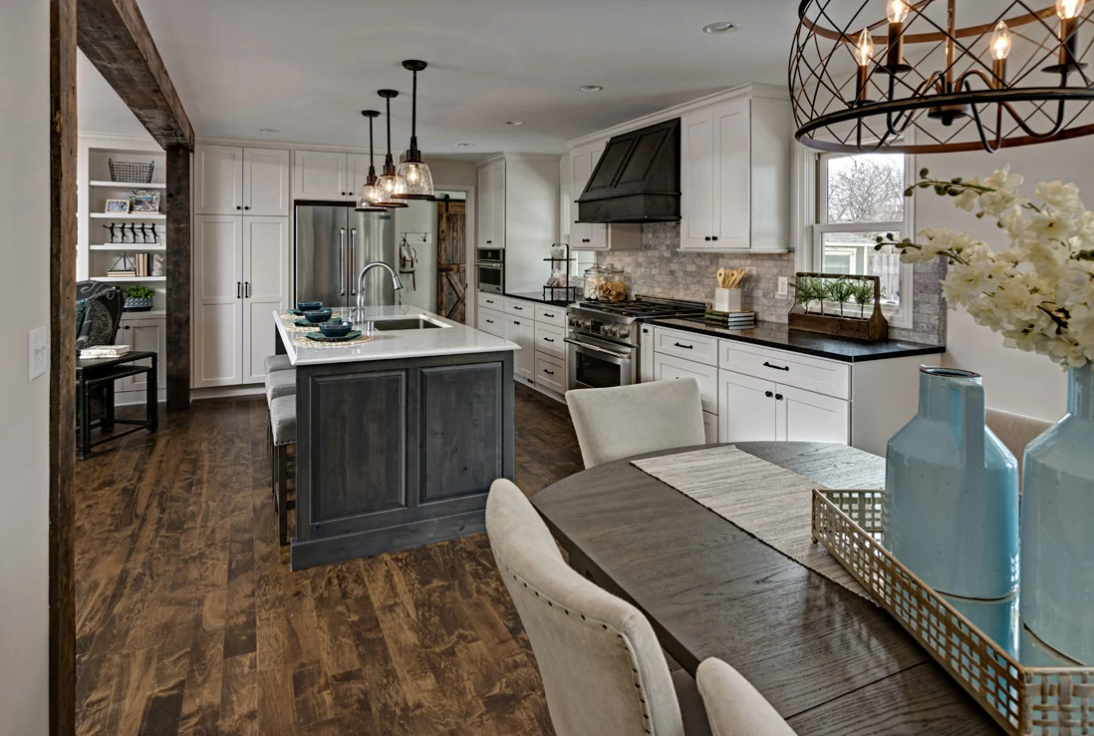
Renew, Reuse, Remodel: The Ultimate Guide To Eco-Friendly Kitchen Renovation
November 15, 2023The concept of sustainability has permeated all aspects of life, from the products we consume to the way we design our homes. In recent years, there has been a substantial shift towards ‘Greenovation’, with homeowners seeking to create living spaces that are not only aesthetically pleasing but also environmentally friendly.
The kitchen, often considered the heart of any home, is one area where such eco-friendly remodeling initiatives can have a significant impact. Incorporating energy-efficient appliances and utilizing sustainable materials are just some ways in which individuals can contribute towards reducing their carbon footprint while simultaneously enhancing their cooking space.
Considerations for an eco-conscious home extend beyond mere functionality; they involve making informed decisions about material choices as well. The construction and renovation industry offers an array of options that balance environmental responsibility with durability and style. From recycled glass countertops to bamboo flooring, these alternatives demonstrate that it is possible to prioritize both aesthetics and sustainability when remodeling one’s kitchen.
This article will provide practical insights into how homeowners can transform their kitchens into spaces that align with their values regarding environmental conservation while catering to their need for a functional and modern culinary workspace.
Energy-Efficiency in Your Cooking Space
Implementing energy-efficient appliances and design elements in the kitchen can significantly contribute to the overall sustainability of a home, while reducing its carbon footprint.
The relationship between energy efficiency and sustainability is symbiotic; not only does it positively impact the environment, but it also results in financial savings for homeowners over time.
Upgrading conventional kitchen equipment with Energy Star-rated appliances such as refrigerators, dishwashers, and ovens reduces energy usage by up to 50 percent.
Furthermore, using LED lighting instead of traditional incandescent bulbs saves significant amounts of electricity since LEDs use approximately 75% less energy.
In addition to appliances, architectural design plays a critical role in improving kitchen energy efficiency.
Optimizing natural light through skylights or larger windows helps decrease dependency on artificial lighting during daytime hours.
Similarly, incorporating effective ventilation systems or passive cooling designs can reduce the need for air conditioning units.
Moreover, installing insulated doors and windows prevents heat loss during colder months which can result in decreased heating requirements thus enhancing overall efficiency.
These practical and strategic implementations create an eco-friendly cooking space that encourages a sense of community around sustainable living practices while catering to modern conveniences and needs.
Material Choices for an Environmentally Conscious Home
Exploring various material options for an environmentally conscious dwelling can lead to intriguing discoveries about sustainability and design.
For instance, opting for recycled or reclaimed materials not only contributes to waste reduction but also adds unique aesthetic appeal to the kitchen area. Materials like bamboo, cork, or reclaimed wood are excellent sustainable alternatives to traditional hardwoods as they are renewable resources that require less energy and water during manufacturing processes. By choosing these materials, homeowners contribute positively towards reducing deforestation rates globally.
Furthermore, countertops made from recycled glass or post-consumer recycled paper products offer a visually appealing alternative to traditional granite or quartz options while significantly lowering environmental impact. Post-consumer recycled paper products undergo a thorough sanitation process before being transformed into durable and resistant surfaces.
On the other hand, recycled glass countertops consist of up to 90% post-consumer waste glass combined with concrete or resin binder which results in captivating patterns that make each countertop unique. Henceforth, making mindful material choices not only fosters eco-friendly living but also provides opportunities for homeowners to express their individual style in an ethically responsible manner.

